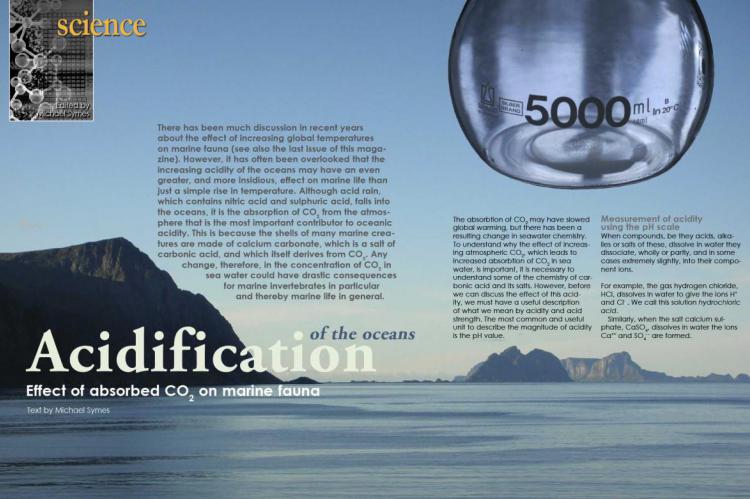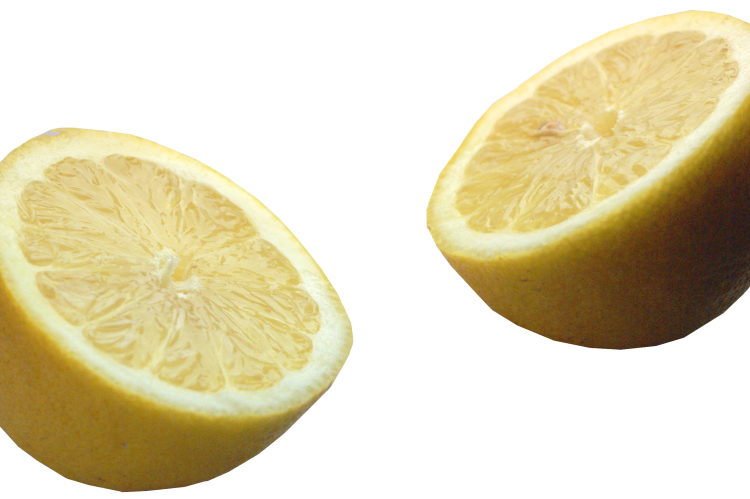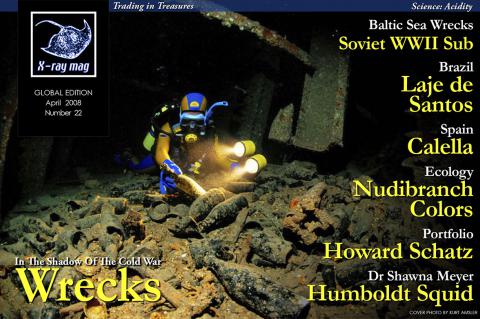Acidification of the Oceans
There has been much discussion in recent years about the effect of increasing global temperatures on marine fauna (see also the last issue of this magazine). However, it has often been overlooked that the increasing acidity of the oceans may have an even greater, and more insidious, effect on marine life than just a simple rise in temperature.
Tags & Taxonomy
The absorbtion of CO2 may have slowed global warming, but there has been a resulting change in seawater chemistry. To understand why the effect of increasing atmospheric CO2, which leads to increased absorbtion of CO2 in sea water, is important, it is necessary to understand some of the chemistry of carbonic acid and its salts. However, before we can discuss the effect of this acidity, we must have a useful description of what we mean by acidity and acid strength. The most common and useful unit to describe the magnitude of acidity is the pH value.
Download the full article ⬇︎

Originally published
X-Ray Mag #22
This issue is packed with stories on wrecks, nudibranchs, sea turtles and sharks. We visit dive destinations at Leje de Santos in Brazil and the picturesque village of Calella on the wild coast of Spain. Arnold Weisz investigates effects of the treasure trade. Learn how carbon emissions is changing the acidity of the seas and the effects on sealife. South African underwater photographer, Fiona Ayerst, reports on the tragic loss of eight Tiger sharks, three of them poached in protected waters. Andrey Bizyukin translates an interview with explorer Anatoly Sagalevich who touched bottom at the North Pole. Cedric Verdier discusses diver safety and rescue in very remote areas. Get a report on Moscow's Golden Dolphin dive show, an inside perspective of IAHD's education for disable divers, Shawna Meyer's close encounter with Humboldt squid, and tips from Kurt Amsler on shooting wrecks. We interview fine art and commercial photographer, Howard Schatz, about his latest book, H2O.



